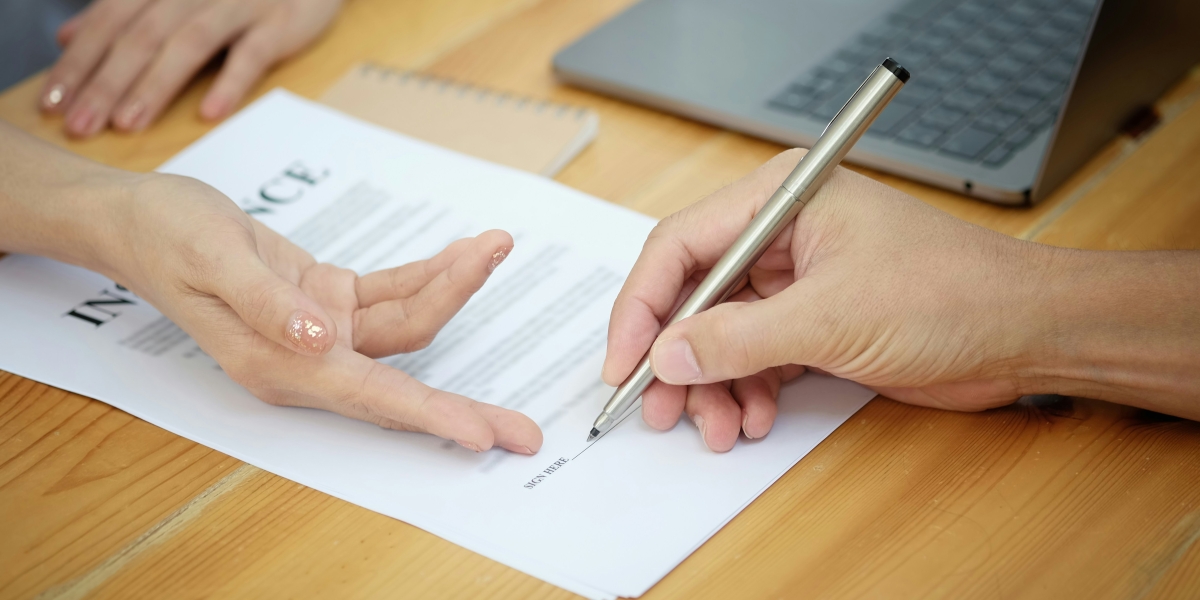A recorded statement is basically your version of what happened in the accident that you were involved in but said out loud and recorded, either over the phone or in person. Insurance companies use these recordings as part of their investigation. At first, it may sound innocent. They’ll tell you it’s just part of the process. But that recording becomes evidence.
The questions they ask might sound simple. They’ll want the time, location, what you were doing, what the other driver did, and whether you were hurt. But what they’re really doing is building a case, and not necessarily one that helps you. In fact, their goal is often the opposite. They’re trying to lock in your version of the story so they can later compare it to everything else and catch you slipping, even just a little.
Without legal help and guidance from Jacoby & Meyers accident lawyers, the odds of you falling victim to this legal booby trap is incredibly high.
You’re Not Required to Give a Statement to the Other Driver’s Insurance Company
Here’s what you absolutely need to know: you don’t have to say anything to the other driver’s insurance company. You’re only required to cooperate with your own insurance provider. That’s it.
So when the other company calls you up and starts asking questions, you can politely say you’re not giving a statement right now. You can even hang up if you’re not ready to talk. A lot of people don’t realize this and end up giving statements that hurt their chances later.
And the reason they want to talk to you fast, sometimes within 24 hours, is because you’re still shaken up. You’re vulnerable. You might be in pain, confused, or not even fully aware of your injuries yet. But they want to get your words down right then when you’re most likely to say something they can use later.
The Risks of Giving Recorded Statements to the Insurance Company
Here are some of the reasons you should never agree to give a recorded statement to the insurance company:
You Might Say Something That Sounds Like an Admission of Fault
One of the biggest problems with giving a recorded statement is that you might accidentally say something that can be twisted into sounding like you were at fault, even if you weren’t.
For example, if you say, “I didn’t see the other car until the last second,” that could be used to argue that you weren’t paying attention, even if the other driver ran a red light. These kinds of phrases might seem harmless in everyday conversation, but insurance adjusters are trained to spot language that can be used against you.
Once it’s on record, they can bring it up over and over again to make it seem like the crash was your fault.
Minor Details Can Be Used to Question Your Credibility
Even small differences in your story can hurt you later. Say you mention in your recorded statement that the accident happened at 5:00 PM, but a traffic camera later shows it was 4:45 PM.
That 15-minute difference might not seem like a big deal, but the insurance company can use it to argue that you’re not a reliable witness. They’ll start pointing out other inconsistencies and paint a picture that maybe you’re not remembering things clearly, or worse, that you’re changing your story.
You Could Get Misquoted or Taken Out of Context
Another real risk is having your words twisted or taken out of context. Even if you’re careful, insurance adjusters might ask confusing or leading questions. Later, they might quote something you said in a way that sounds completely different from what you meant.
For example, if you say, “I guess I could’ve done something differently,” they might use that to argue you were partially responsible for the accident, even if you were just expressing frustration about the situation.
Conclusion
No one expects to get into a car accident. And when it happens, the last thing you need is to have your own words used against you. Insurance companies move quickly, and they’re hoping you won’t stop to think. But you don’t have to give them what they’re asking for right away.
Always talk to a lawyer first. Understand your rights. Make sure your story is told in a way that protects you, not the insurance company.
Disclaimer: The information provided in this article is for general informational purposes only and should not be construed as legal advice. The content is not a substitute for consulting with an attorney. Readers should seek professional legal counsel before giving statements or making any decisions related to insurance claims after an accident.


















